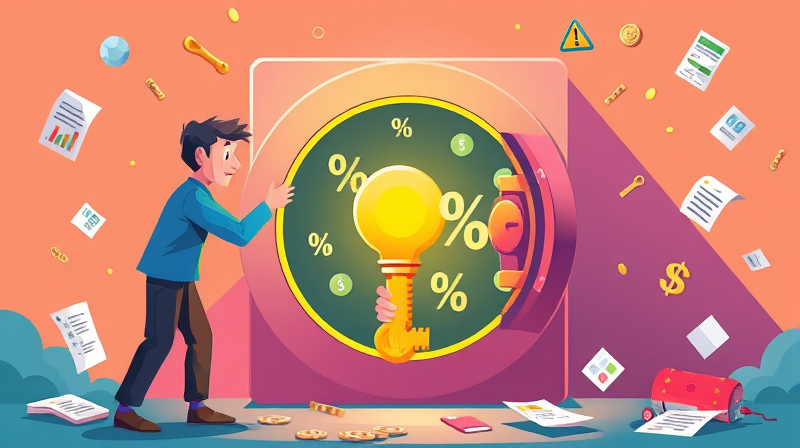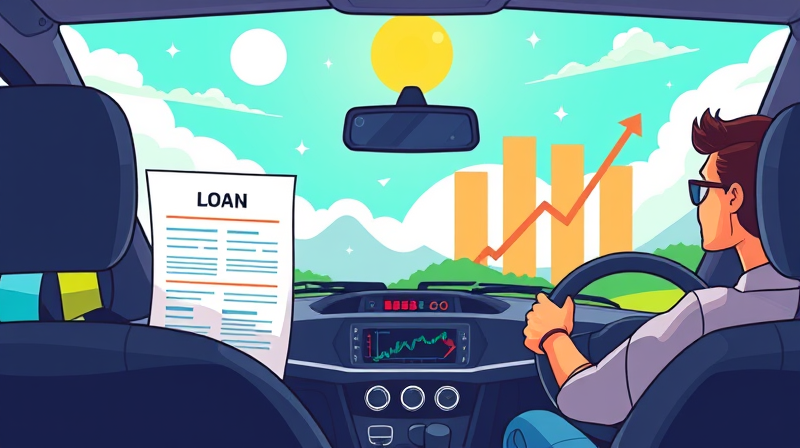Debt can feel overwhelming, but you don’t have to face it alone. A consolidation strategy could be your path to relief.
Understanding Debt Consolidation
Debt consolidation involves taking out a new loan or using a balance transfer credit card to pay off multiple high-interest debts. After consolidating, you make just one monthly payment instead of juggling numerous due dates and statements.
Rather than coping with varied interest rates and minimum payments, you gain a single manageable repayment plan. Whether you choose a personal loan, home equity loan, or promotional credit card, the goal remains the same: eliminate high-cost debt efficiently.
Key Benefits of Consolidating Your Debt
- Potential Lower Interest Rates: If you qualify with good credit, consolidation loans often carry lower APRs than credit cards, reducing your overall interest expense.
- Fewer Bills to Manage: One payment each month simplifies budgeting and reduces the risk of missed or late payments.
- Stronger Credit Building Opportunity: On-time payments toward a consolidation loan demonstrate reliability, often boosting your credit score over time.
- Flexible Repayment Options: Terms can range from 12 to 144 months, so you can choose between faster payoff or smaller monthly obligations.
- Balance Transfer Promotions: Some cards offer 0% APR for 12–21 months, potentially eliminating interest if you pay off the balance during the promotional window.
Imagine you owe $9,000 in credit card debt at an average APR of 25%, paying $500 per month. In two years you’d shell out about $2,500 in interest. Now, picture a two-year consolidation loan at 17% APR requiring $445 monthly. You’d save roughly $820 in interest, freeing up cash for savings or other goals.
Potential Drawbacks to Consider
- Longer Repayment Can Cost More: Extending your term might lower monthly payments but increase total interest paid.
- Loss of Borrower Benefits: Original loans may carry perks like rate discounts or principal rebates that won’t transfer over.
- Temptation to Re-Borrow: If spending habits remain unchanged, you risk piling up fresh debt on newly cleared credit cards.
- Qualification Hurdles: Best rates require solid credit scores, low debt-to-income ratios, and stable income streams.
When Debt Consolidation Makes Sense
Not every financial situation warrants consolidation. Ask yourself:
- Can you secure a lower APR than your current debts?
- Do you have a credit score above 680 and a DTI ratio below 45%?
- Are you struggling with multiple payment due dates each month?
- Can you commit to not using credit cards while repaying the consolidation loan?
In today’s economic climate, with credit card rates holding above 20%, acting sooner can lock in savings before rates rise further. If you meet the criteria and maintain discipline, consolidation can clear your high-cost balances and jump-start your debt-free journey.
Methods of Debt Consolidation
- Personal Loans: Unsecured loans designed specifically for debt consolidation, often with fixed rates.
- Home Equity Loans: Secured by your home, these usually offer lower interest but carry the risk of foreclosure if you default.
- Balance Transfer Cards: Promotional cards with 0% APR periods; ideal if you can pay off the balance within the introductory window.
- Credit Union Loans: May provide more favorable terms to members compared to big banks.
Comparing Costs: Original vs. Consolidation
Critical Steps Before You Consolidate
Before moving forward, take these actions:
- Calculate Total Cost: Compare principal plus interest over both the old debts and the new loan.
- Review All Fees: Origination, balance transfer, and prepayment penalties can erode your savings.
- Secure Lender Transparency: Confirm terms in writing to avoid unexpected rate hikes or hidden charges.
- Address Root Causes: Create a realistic budget and spending plan to prevent future debt accumulation.
Your Path to Financial Freedom
Debt consolidation isn’t a cure-all, but it can be a powerful tool when used wisely. By streamlining multiple debts into one accessible plan, you simplify your finances and can save a significant amount on interest.
Success depends on disciplined repayment, understanding all costs, and choosing the right consolidation vehicle for your unique situation. When executed effectively, you’ll move from feeling overwhelmed by bills to confidently charting a course toward lasting financial stability.
Consider consulting a reputable financial advisor or credit counselor to tailor a consolidation strategy that aligns with your goals. With the right approach, you can transform debt from a source of stress into a stepping stone toward newfound freedom.
References
- https://www.experian.com/blogs/ask-experian/pros-and-cons-of-debt-consolidation/
- https://www.investopedia.com/terms/d/debtconsolidation.asp
- https://www.mapscu.com/2024/07/08/the-pros-and-cons-of-debt-consolidation/
- https://www.nerdwallet.com/article/loans/personal-loans/pros-and-cons-debt-consolidation
- https://www.cbsnews.com/news/will-a-debt-consolidation-loan-be-worth-opening-in-2025-experts-weigh-in/
- https://www.lendingtree.com/debt-consolidation/what-is-a-consolidation-loan/
- https://studentaid.gov/help-center/answers/article/pros-and-cons-of-consolidation










